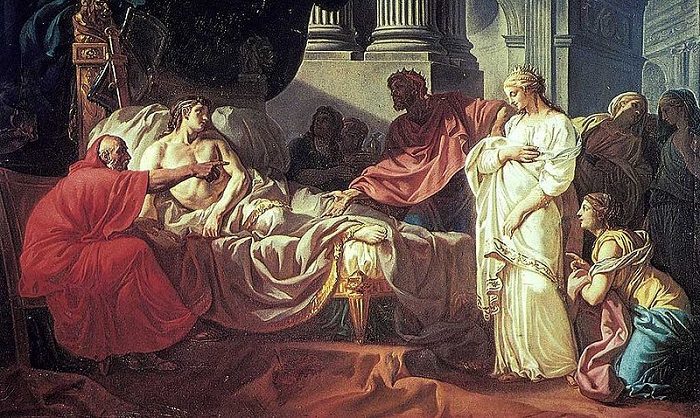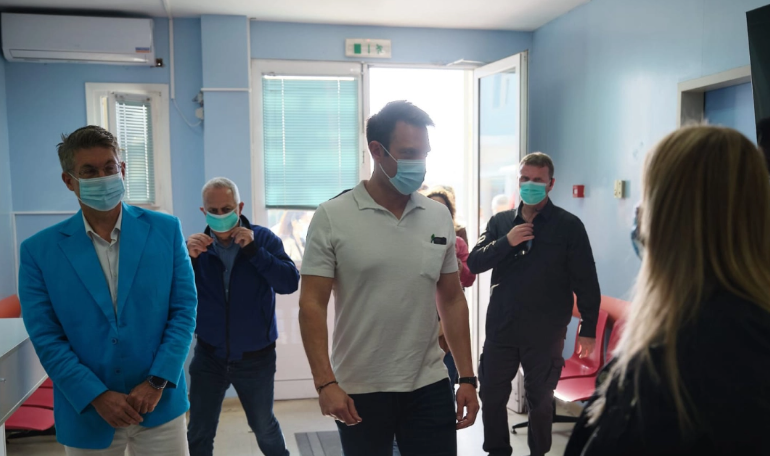As long as there no bullet-proof mechanisms to detect a lie, reading a person’s physical response to spot an untruth is one technique that survived through the centuries.
The Greek physician Erasistratus (300-250 B. C.) is credited with perfecting this technique of truth-seeking in Alexandria.
It is said to have proven Prince Antiochus was desperately in love with his father’s new wife, Stratonice, by noting how his pulse increased significantly whenever the queen’s name was mentioned, despite his insistence that he did not have the hots for his stepmother.
Love-struck, he fell ill with passion and chose to pine away in silence. The physicians were unable to discover the cause and nature of his disease.
Erasistratus himself was at a loss at first, until, finding nothing amiss about his body, he began to suspect that it must be the man’s mind which was diseased, and that he might perhaps be in love.
Erasistratus confirmed his conjecture when he observed that the skin of Antiochus grew hotter, his color deeper, and his pulse quicker whenever Stratonice came near him, while none of these symptoms occurred on any other occasion.
The Greek physician eventually told the father, King Seleucus, that his son’s disease was incurable, for he was in love with the monarch’s wife and that he chose to die rather than to disclose his secret.
According to the anecdote, Seleucus not only gave up Stratonice, but also resigned to his son several provinces of his empire.
Erasistratus along with fellow physician Herophilus, founded a school of anatomy in Alexandria where they carried out anatomical research.
He is credited for his description of the valves of the heart, and he also concluded that the heart was not the center of sensations, but instead it functioned as a pump.
Source: Tasos Kokkinidis/greekreporter


































